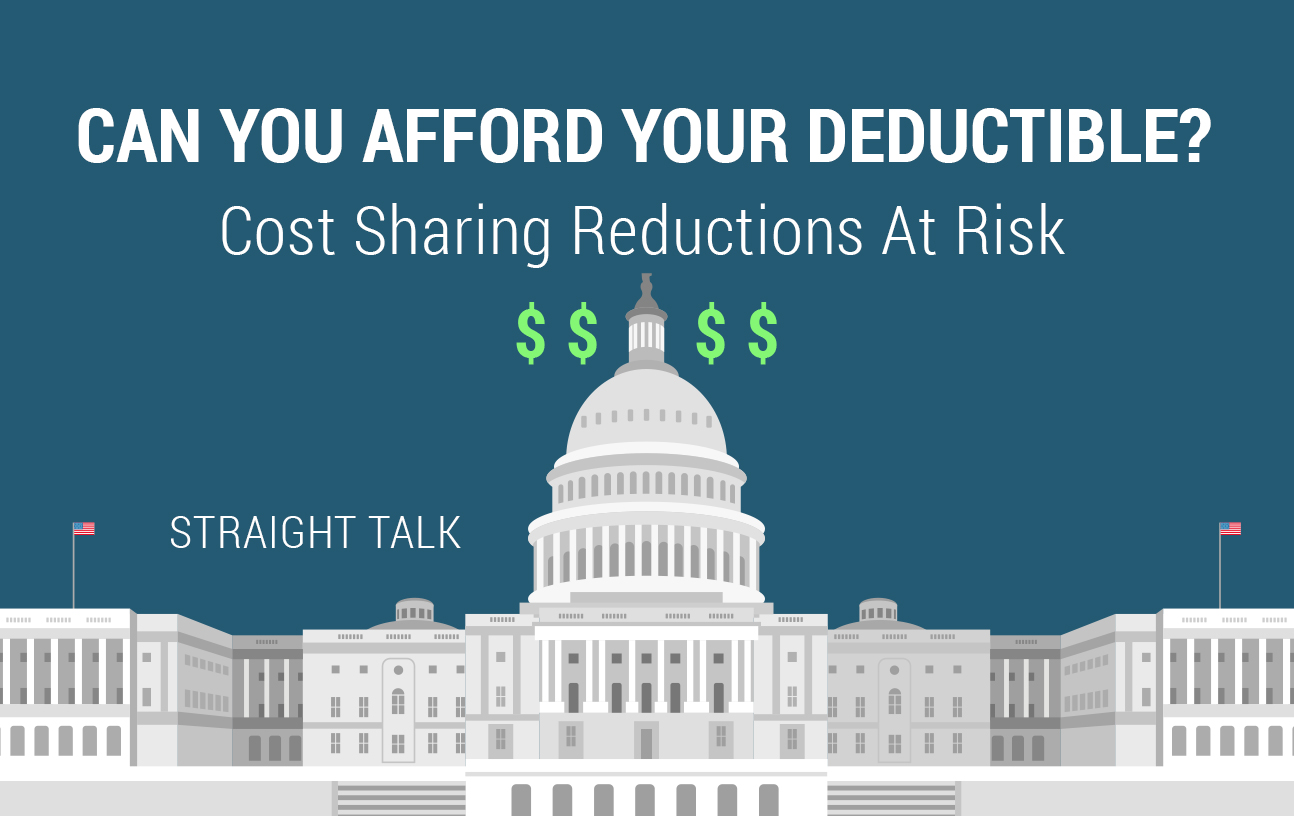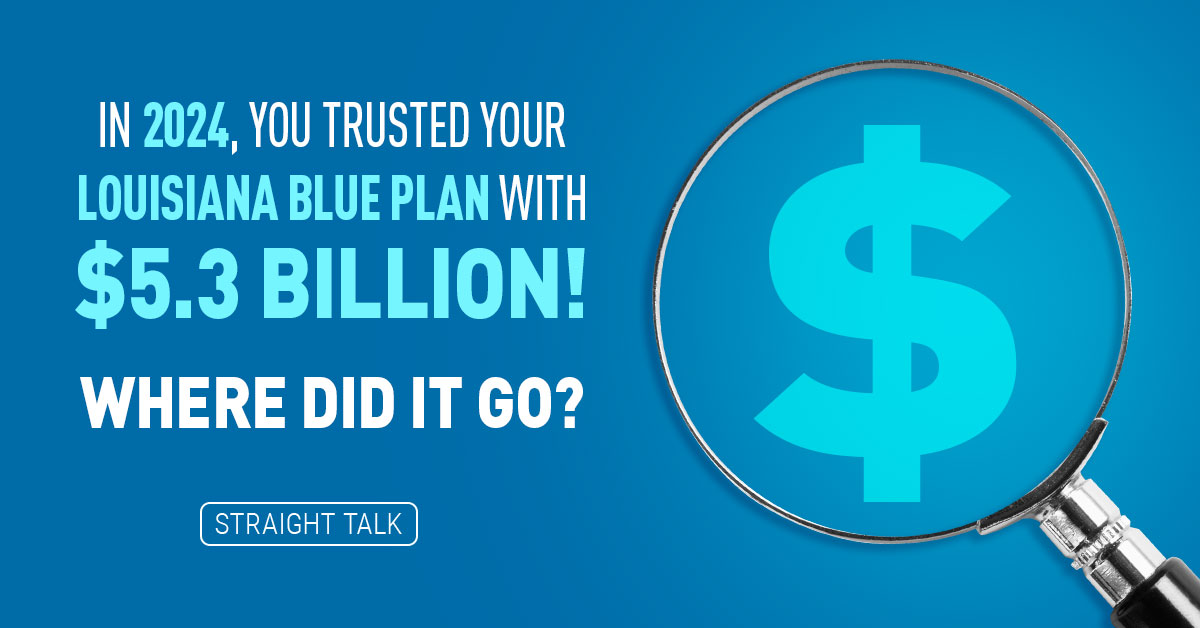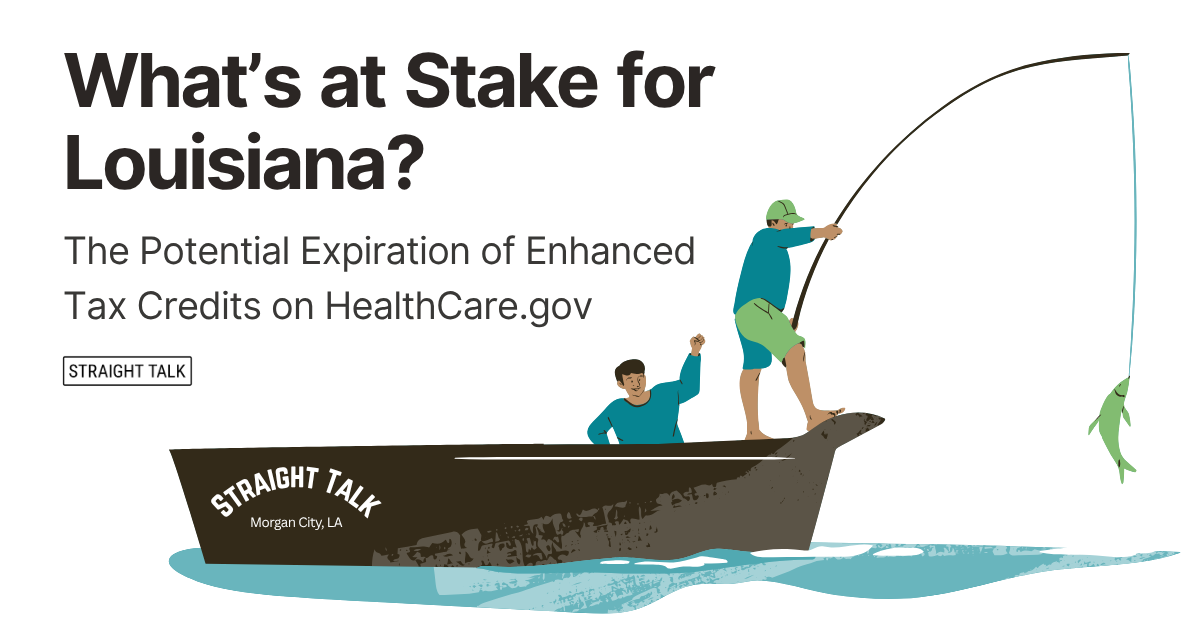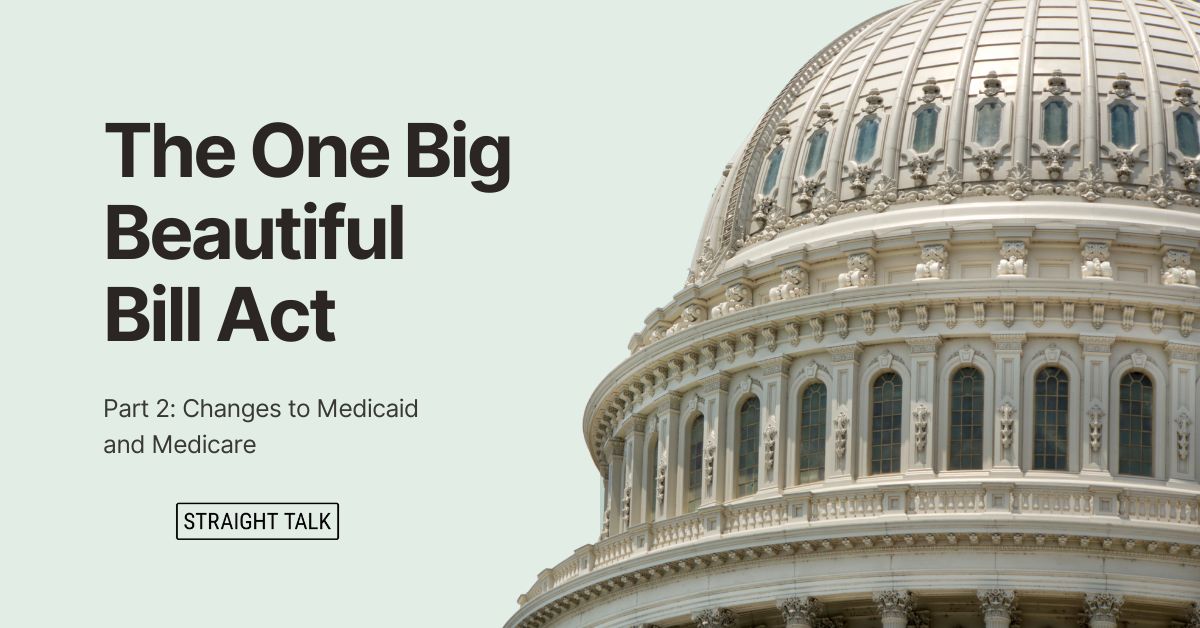One of the real puzzles the designers of the Affordable Care Act (ACA) had to solve back in 2010 was this:
“We want people to be able to afford to pay their health insurance premiums, and we’re going to give them money (advanced tax credits) to help cover the premium cost. But the insurance we want to design for everyone will still have pretty high deductibles, at least $2,000 or more. How are really low income people going to be able to afford to USE the insurance we are helping them buy?”
It’s a sticky problem. Health insurance by its very design is a risk-sharing arrangement over three zones of payment. The first zone, what I call the “deductible zone,” is where the insured individual has the most risk and has to come up with the most money out of pocket.
Healthcare.gov-approved health plans, designed for Louisianians who make as little as $16,500 per year, require the member to spend AT LEAST $2,500 out of pocket to cover their deductible. How likely is it that someone with such an income can find $2,500 to pay for their healthcare BEFORE the insurance starts paying significant amounts?
‘While the ACA says Congress should pay this money to health insurance companies for providing this benefit, Congress has not ponied up the money officially.’
The designers of the law determined that it would not be likely at all. So they came up with a SECOND layer of federal assistance to help folks with lower income afford their deductibles, as well as their premiums. They call this second layer Cost Sharing Reductions or CSRs.
CSRs – A Very Big Deal
Are CSRs a big deal? You bet. At last count, 6.3 million Americans are getting CSRs to go with their health insurance advanced tax credits.
Essentially, anyone with a household income below 250% of the federal poverty level who is getting advanced tax credits and buying a Silver Plan on healthcare.gov or a state exchange is eligible. Their out-of-pocket costs are being reduced a lot, this makes USING their insurance actually affordable for them.
‘What the heck is going to happen now? Will President Trump, who campaigned on repealing the ACA, let his own lawyers defend the CSRs? Will the Republican Congress continue to sue a Republican president?’
In Louisiana alone, more than 130,000 of our friends and neighbors are receiving this important help at the moment.
The Threat to CSRs
So, Mike, why do you say “at the moment?” Are these payments threatened?
Yes, and in a big way.
You see, the federal funding of the CSRs, roughly $130 billion over the next 10 years, is supposed to be money appropriated by Congress. Congress has refused to fund the CSRs since 2014, and the White House has covered the cost (around $7 billion for 2016) by shuffling funds from other federal agencies.
While the ACA says Congress should pay this money to health insurance companies for providing this benefit, Congress has not ponied up the money officially. When the White House kept paying, Congress responded by suing the Obama Administration, essentially saying that if Congress says “no funding,” nobody else can fund it either. Whew!
What Do the Courts Say About CSR Funding?
Back in May, a court in Washington, D.C., agreed with Congress that the government could not keep spending this money without Congress’ permission. The Judge even said the federal government should stop making these payments immediately! But she was kind enough to delay her order until after the White House appealed the ruling.
‘That means if the feds go forward with cutting off the CSRs, either rates will go up a lot, AGAIN, or carriers will simply walk away from the marketplaces.’
Fast forward to December 2016. What we had before was essentially a Republican Congress that had voted more than 60 times to repeal the ACA trying to stop a part of it by shutting off the CSRs. NOW what we have is a Republican president-elect being sued by his own party over this issue!
What the heck is going to happen now? Will President Trump, who campaigned on repealing the ACA, let his own lawyers defend the CSRs? Will the Republican Congress continue to sue a Republican president?
What Happens If the Feds Stop Paying?
This is where it gets tricky. You see, a company like Blue Cross selling insurance on healthcare.gov HAS to provide CSRs to those who are eligible, whether the federal government pays for it or not. This means that the $7 billion I mentioned above would have to be raised by the insurance companies remaining in healthcare.gov by either raising premiums enough to cover it (another 15% – 20% rate increase is a real possibility) or by just absorbing the losses.
Many carriers have already fled the exchange markets. In our own state, we are down to two carriers in most parishes, with three in just a couple. There is honestly no way insurance companies are going to absorb that cost; they are already losing quite a bit of money on healthcare.gov, for reasons I’ve discussed with you at length here and here.
That means if the feds go forward with cutting off the CSRs, either rates will go up a lot, AGAIN, or carriers will simply walk away from the marketplaces. At this point, I’m not sure which way to point you, but it is CRITICAL that we are all aware of this situation. 131,000 of our friends and neighbors health insurance coverage is clearly at risk.
So Let’s Review.
Cost Sharing Reductions make it possible for even the lowest income exchange shoppers to afford their deductibles and out-of-pocket costs. Congress is supposed to fund them under the ACA but has refused to do so. The White House has been covering that cost outside of Congressional authority by moving money around from other sources. Congress has sued (and won) and technically can block the administration from making these payments.
Insurance companies that sell on healthcare.gov are REQUIRED to provide this benefit, even if Congress stops funding it, which will leave them with the choice of getting out of the individual market, or raising premiums AGAIN, a lot.
So here’s hoping the income that the Trump administration (since they are supposed to be on the same side as Congress) realizes how important this benefit is to more than six million Americans and how quickly they will lose their health insurance if it goes away, and keeps the funding in place until they can figure out their “replacement” plan. Otherwise, a ton of the most vulnerable among us are going to be left out in the cold.
Straight as I can make it for you.
Happy holidays! We will be back in the new year with more analysis, commentary and straight talk on healthcare in the United States.




